Com Vong or Green sticky rice in Vong Village together with 10 dishes and specialties from Vietnam have just been listed in the Asian Culinary Records.
Ten newly recognized culinary records
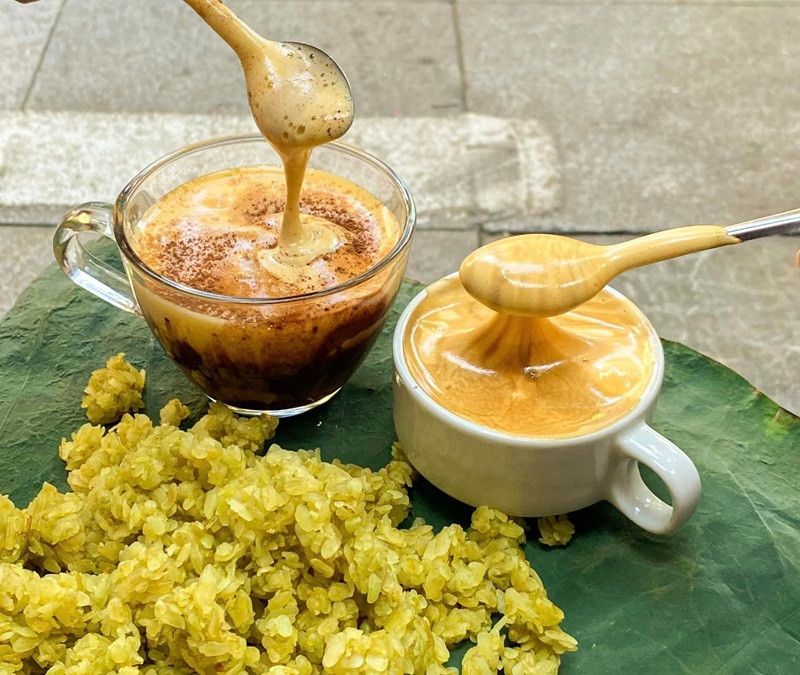
The newly accredited records include the Saigon bread from Ho Chi Minh City, mussel rice from Thua Thien-Hue Province, Phan Thiet hotpot from Binh Thuan Province; vermicelli soup with special broth from Soc Trang Province; Ninh Hoa grilled fermented pork roll from Khanh Hoa Province; sesame candy from Thua Thien-Hue; Da Lat strawberries from Lam Dong Province; dried sweet potatoes from Quang Binh; Tra Cuon cylindrical sticky rice cake from Tra Vinh Province; and especially, the green sticky rice or Com Vong from Vong Village in Hanoi.
So far, 60 Vietnamese dishes have been recognized in Asian Culinary Records to "bring the essence of Vietnamese cuisine to the world."
According to a representative of the Vietnam Records Organization (VietKings), Vietnamese cuisine and specialties in each of the 63 cities and provinces have distinctive flavors, ingredients, and ways of using and combining spices.
What makes Com Vong so special?
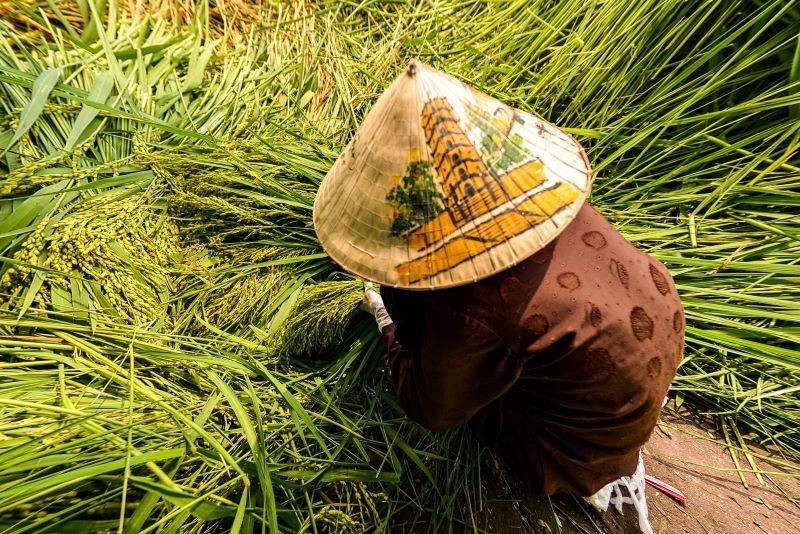
Visitors arriving in Hanoi in the fall and winter will catch sight of vendors selling green rice flakes on the streets. As rustic as the country snack, com, is an unmistakable Hanoi specialty.
It is hard to say when the craft started, but the Hanoi specialty has been famous locally and abroad for centuries.
Com Vong, or green sticky rice, was made by villagers in Vong Village or today's Dich Vong Hau Ward, Cau Giay District in Hanoi. The glutinous rice suitable for the preparation of this specialty must be about to ripen, still containing the rice milk and fragrant. To make delicious and aromatic young rice, the raw material must be carefully selected. The glutinous rice must be Nep cai hoa vang or special round grain glutinous rice.
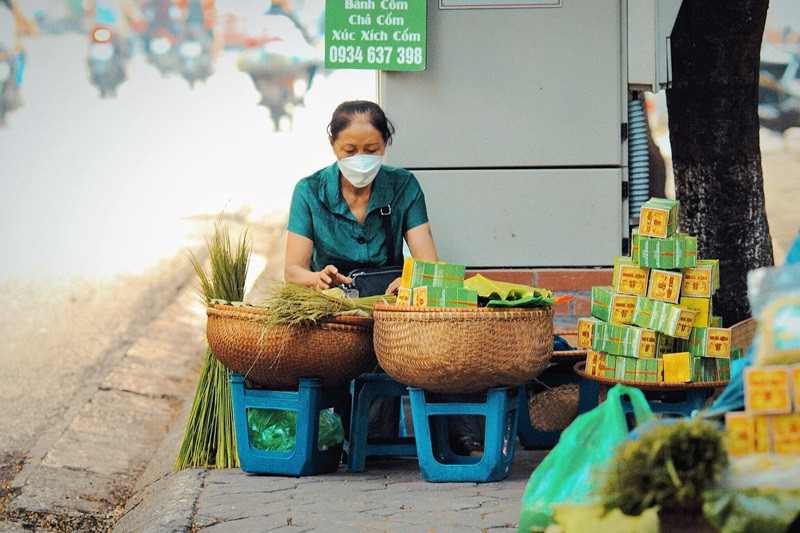
Vong villagers said making Com Vong is meticulous work. First, good rice is selected, then thrashed, sifted, and washed in large washers to remove the thin grains that float to the surface. The rice is then dried in a large iron pan over a wood fire. Then, it is pounded by machines. For every ten kilograms of sticky rice, only about two kilograms of young rice are produced.
The process of pounding and drying com is the most important step. These techniques are often kept within the household, never passed on to outsiders or daughters for fear they will pass it on to their husband's family.
Through many ups and downs in history, the traditionally renowned craft of making Com Vong is still well preserved and developed. Nguyen Thi Thao, a Com Vong maker from Dich Vong Hau Ward, Cau Giay District, Hanoi, said that she is the 5th generation in her family to practice this profession.
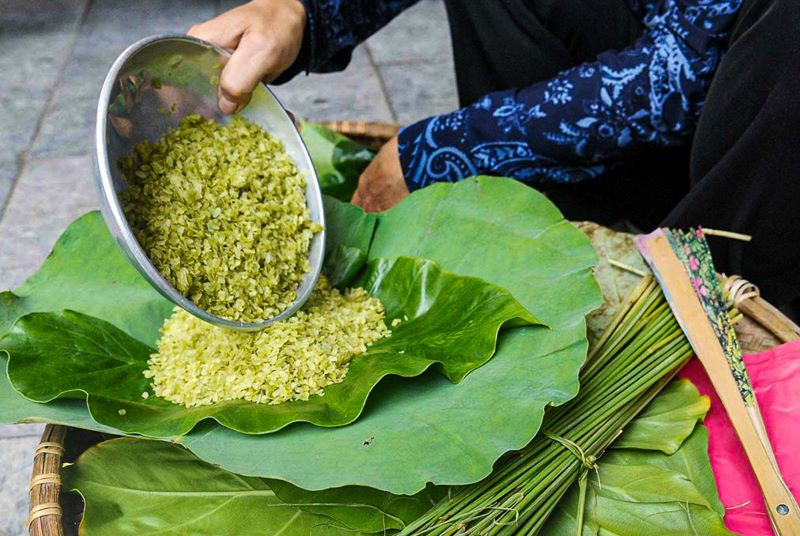
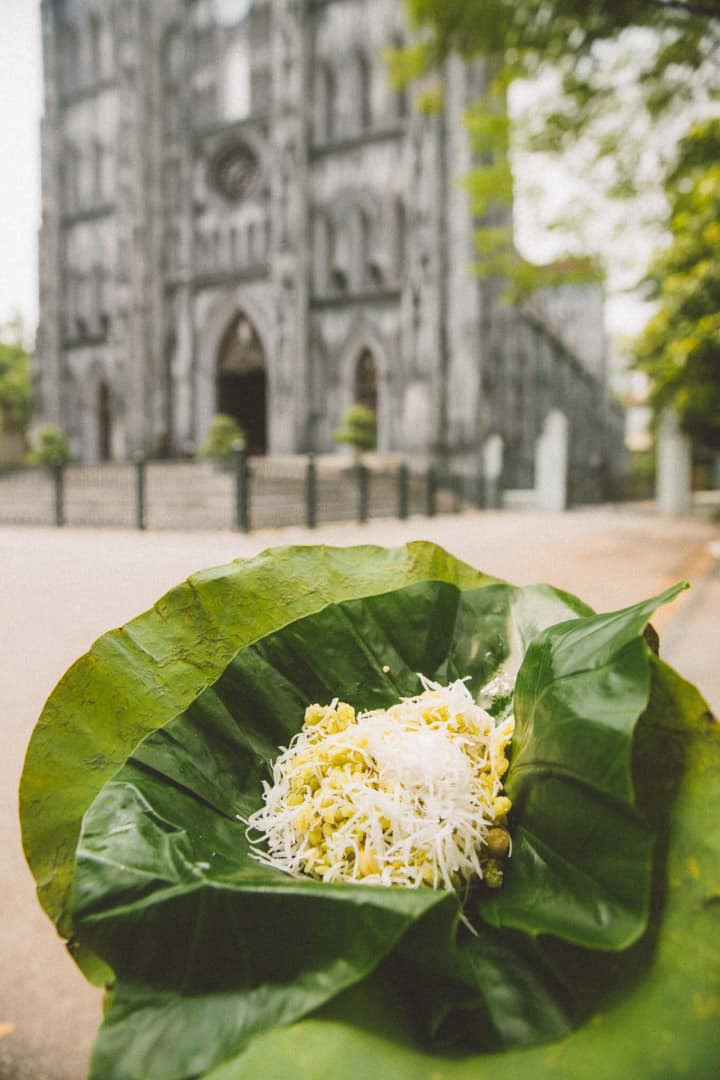
“My family’s com-making trade has a long history. My great-grandparents handed it down to my grandparents, who passed it on to my parents, and now I’ve been involved in the traditional trade for more than 40 years,” she stated.
The process of urbanization and modernization within the city has turned the rural village of Vong into a metropolitan area. The rice fields are gradually being replaced by high-rise office buildings, crowded condominiums, and bustling commercial areas. But the people here are still passionate about their ancestor's traditional craft. With no fields left to grow paddy, they must buy young rice from other places to make this specialty.
In addition to Vong Village in Cau Giay District, Com is also produced in Me Tri Village or the present Me Tri Ward, Nam Tu Liem District, Hanoi. But the young rice produced in Vong Village is said to be the most fragrant and delicious.